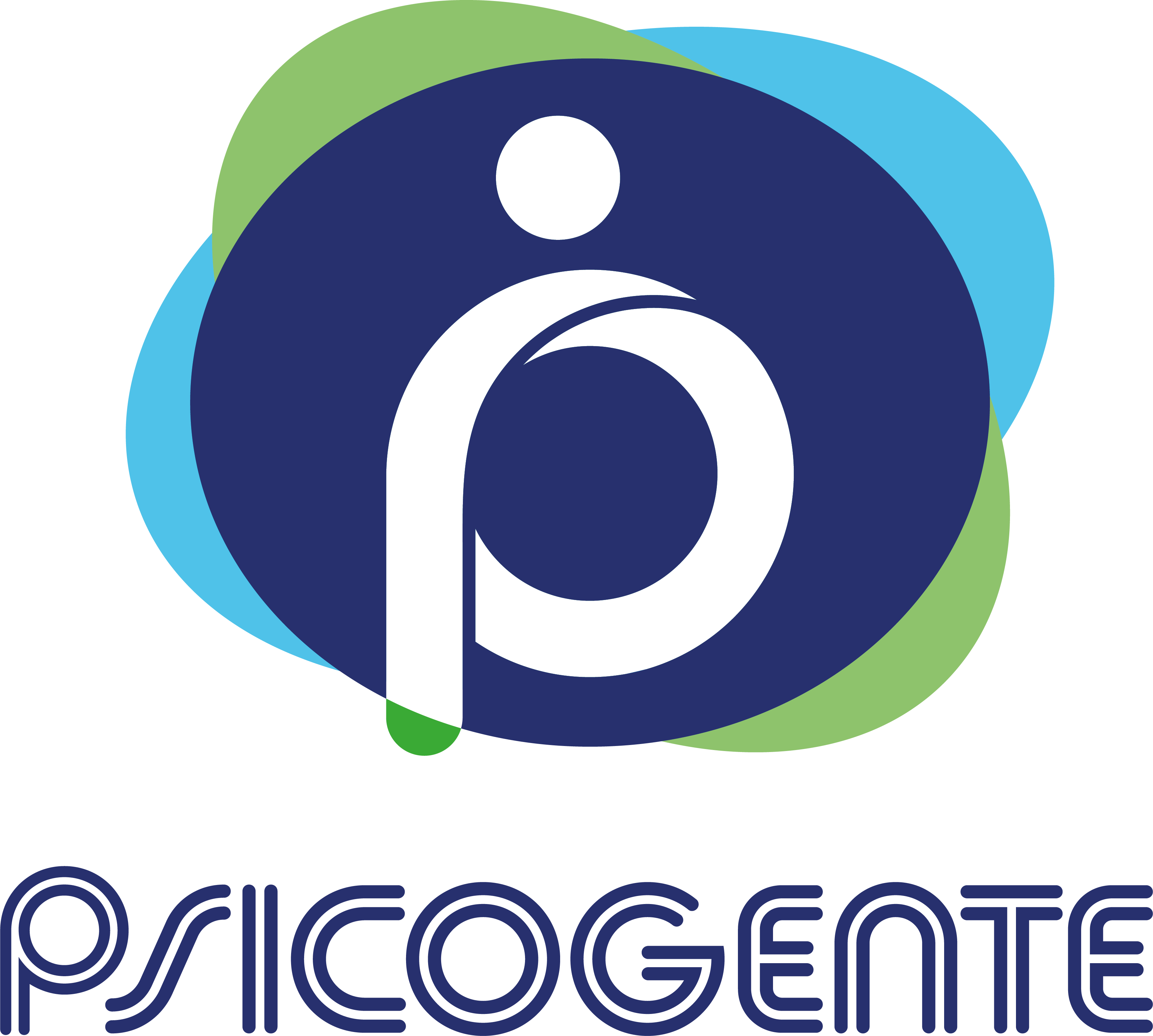Metacognitive skills of undergraduate university students: study based on three colombian institutions
Habilidades metacognitivas de estudiantes universitarios de pregrado: estudio en tres instituciones colombianas
DOI:
https://doi.org/10.17081/psico.26.50.6162Resumen
Objective: The main goal of this study is to determine and compare the metacognitive abilities of undergraduate students in Colombia.
Method: 1204 students from three different universities were involved, one of a public university and distance mode; and the other two private and face-to-face modality. The Metacognitive Awareness Inventory (MAI) validated for authors (2014) was applied. Tukey's HSD test was implemented to establish significant differences between institutions, the T-test was used to determine differences by gender, and Pearsons correlation was used to determine differences by semester.
Results: Students have a high level of metacognitive abilities, with significant differences in favor of those in the distance mode. There are no significant differences by gender, although women have higher averages; nor by semester.
Conclusion: Although students have a good development of their abilities, it is necessary to strengthen especially the evaluation process. The students who are trained through virtual distance methodology showed a greater degree of development of the metacognitive skills than those trained through face-to-face modality. This could be explained by a greater development of autonomy as an indicator of maturity for learning.
Descargas
Citas
A., Lizaso, I., & Iturbec. I. (2018). Learning Strategies and Reasoning Skills of University Students. Revista Psicodidáctica, 23(2), 110-116. https://doi.org/10.1016/j.psicod.2018.01.001flavel
Aguilar-Perez, P., Cruz-Covarrubias, L.P., Aguilar-Cruz, P.D. & Magaña-Jáuregui. C.I. (2023). Análisis del pensamiento crítico en estudiantes de una universidad pública mexicana. [Analysis of critical thinking in students of a mexican public university]. Cultura, Educación y Sociedad, 14(1), 125-144. https://doi.org/10.17981/cultedusoc.14.1.2023.07
Akbari, M., Bahadori, M. H., Khanbabaei, S., Milan, B. B., Horvath, Z., Griffiths, M. D., & Demetrovics, Z. (2023). Metacognitions as a predictor of problematic social media use and internet gaming disorder: Development and psychometric properties of the Metacognitions about Social Media Use Scale (MSMUS). Addictive Behaviors, 137, 107541. https://doi.org/10.1016/j.addbeh.2022.107541
Andriani, E., & Mbato, C. L. (2021). Male and female Indonesian EFL undergraduate students’ metacognitive strategies in academic reading: planning, monitoring and evaluation strategies. Journal on English as a Foreign Language, 11(2), 275-296. https://doi.org/10.23971/jefl.v11i2.3006
Arguelles, D. & Nagles, N. (2010). Estrategias para promover procesos de aprendizaje autónomo. [Strategies to promote autonomous learning processes]. Alfaomega. 4ta. edición.
Arias, R., & Aparicio, A. (2020). Conciencia metacognitiva en ingresantes universitarios de ingeniería, arquitectura y ciencias aeronáuticas [Metacognitive Awareness in University Graduates in Engineering, Architecture and Aeronautical Sciences]. Propósitos y Representaciones, 8(1), e272. https://dx.doi.org/10.20511/pyr2020.v8n1.272
Arias, W., Zegarra, J., & Velarde, O. (2014). Estilos de aprendizaje y metacognición en estudiantes de psicología de Arequipa [Learning and metacognition styles in psychology students from Arequipa]. Revista Peruana de Psicología, 20(2), 267-279. http://www.scielo.org.pe/scielo.php?script=sci_arttext&pid=
S1729-48272014000200008&lng=es&tlng=es
Azevedo, R. (2020). Reflections on the field of metacognition: issues, challenges, and opportunities. Metacognition Learning 15, 91-98. https://doi-org.ezproxy.uan.edu.co/10.1007/s11409-020-09231-x
Barrero, N. (2001). El enfoque metacognitivo en la educación [The metacognitive aproach in education]. Revista electrónica de Investigación y Evaluación Educativa (RELIEVE), 7(2), 47-49. https://doi.org/10.7203/relieve.7.2.4441
Bernal, M., Gómez, M., & Lodice, R. (2019). Interacción Conceptual entre el Pensamiento Crítico y Metacognición [Conceptual interaction between critical thinking and metacognition]. Revista Latinoamericana de Estudios Educativos, 15(1), 193-217. https://doi.org/10.17151/rlee.2019.15.1.11
Boekaerts, M., Pintrich, P. R., & Zeidner, M. (2000). Self-regulation: An introductory overview. In M. Boekarts, P. R. Pintrich, & Zeidner, M. (Eds.), Handbook of self-regulation (pp.1-9). Burlington, MA: Elsevier Academic Press. https://doi.org/10.1016/B978-012109890-2/50030-5
Bortone, R. & Sandoval, A. (2014). Perfil metacognitivo en estudiantes universitarios [Metacognitive proflie of university students]. Investigación y Postgrado, 29(1), 95-107. http://ve.scielo.org/scielo.php?script=sci_arttext&pid=S1316-00872014000100006&lng=es&tlng=es
Brown, A. (1983). Cognitive development. Unpublished manuscript, National Institute of Child Health and Human Development, Bethesda, M.D.
Brown, A. (1987). Metacognition, Executive Control, Self-Regulation and Other More Mysterious Mechanisms, en Weinert, F.E., Kluwe, R.H. (eds.). Metacognition Motivation, and Understanding, Hillsdale, N.J.: Lawrence.
Bürgler, S., Kleinke, K., & Hennecke, M. (2022). The metacognition in self-control scale (MISCS). Personality and Individual Differences, 199, 111841. https://doi.org/10.1016/j.paid.2022.111841
Campo, K., Escorcia, D., Moreno, M. & Palacio, J. (2016). Metacognición, escritura y rendimiento académico en universitarios de Colombia y Francia [Metacognition, Writing and Academic Performance in Colombian and French College Students]. Avances en Psicología Latinoamericana, 34(2), 233-252. http://dx.doi.org/10.12804/apl34.2.2016.03
Cantillo, K., De la Hoz, Á., & Cerchiaros, E. (2014). Actividad metacognitiva en estudiantes universitarios: un estudio preliminar [Metacognitive Activity in college students: a preliminary study]. Psicología desde el Caribe, 31(3),455-474. https://www.redalyc.org/articulo.oa?id=21332837005
Carretero, M. (2001). Metacognición y educación [Metacognition and education]. Aique.
Carvallo, R. A. (2001). Desarrollo de rasgos asociados a la autoestima a través de la metacognición, en una universidad mexicana [Development of traits related to self-esteem through metacognition in a Mexican university]. Revista electrónica de Investigación y Evaluación Educativa (RELIEVE), 7(2), 135-153. http://www.uv.es/RELIEVE/v7n2/RELIEVEv7n2_5.htm
Castro, V. (2017). Desarrollo de habilidades metacognitivas desde el área de Pensamiento Estratégico en estudiantes de la Universidad Católica de Temuco [ Development of metacognitive skills from the area of Strategic Thinking in students from the Catholic University of Temuco]. Congresos CLABES.https://revistas.utp.
ac.pa/index.php/clabes/article/view/1542
Cavalcante-Pimentel, F., Morais-Marques, M., & Barbosa-de-Sales-Junior, V. (2022). Estrategias de aprendizaje a través de los juegos digitales en un contexto universitario [Learning strategies through digital games in a university context]. Comunicar, 73, 83-93. https://doi.org/10.3916/C73-2022-07
Ceniceros, D. & Gutiérrez, D. (2009). Las habilidades metacognitivas en los estudiantes de la Universidad de Durango [Metacognitive skills in students at the University of Durango]. Psicogente, 12(21), 29-37. http://revistas.unisimon.edu.co/index.php/psicogente/article/view/1184
Cerezo, R., Fernández, E., Amieiro, N., Valle, A., Rosario, P., & Núñez, J.C. (2019). Mediating Role of Self-efficacy and Usefulness Between Self-regulated Learning Strategy Knowledge and its Use. Revista Psicodidáctica, 24, 1-8. https://doi.org/10.1016/j.psicod.2018.08.001
De Jesús, A. (2020). Caracterización de la Regulación Metacognitiva en la Resolución de Problemas sobre Medidas de Tendencia Central [The Characterization of Metacognitive Regulation in the Resolution of Central Tendency Problems]. Ciência & Educação (Bauru), 26, e20043. https://doi.org/10.1590/1516-731320200043
Díaz B. & Hernández, G. (2010). Estrategias docentes para un aprendizaje significativo [Teaching strategies for meaningful learning]. McGraw Hill. 4ta. edición. Embleton, S. B. (2023). Análisis de la metacognición [Analysis of Metacognition]. Ciencia Latina Revista Científica Multidisciplinar, 7(1), 512-520. https://doi.org/10.37811/cl_rcm.v7i1.4410
Efklides, A. (2009). The role of metacognitive experiences in the learning process. Psicothema, 21(1), 76-82. http://www.psicothema.com/psicothema.asp?ID=3598
Efklides, A. (2011). Interactions of metacognition with motivation and affect in self-regulated learning: The MASRL model. Educational Psychologist, 46, 6-25.https://doi.org/10.1080/00461520.2011.538645
Escalante, A. E., Coronado, S. E. & Moctezuma, E. E. (2023). La dimensión metacognitiva de la competencia aprender a aprender en titulaciones españolas [Metacognitive dimension about learning to learn competence in spanish university programs]. Sinéctica, Revista Electrónica de Educación, 60, e1457. https://sinectica.iteso.mx/index.php/SINECTICA/article/view/1457/1550
Figueroa, S., Perez, M., Bacceli, S., Prieto, G. & Moler, E. (2012). Actitudes hacia la estadística en estudiantes de ingeniería [Attitudes towards statistics in studentsof engineering]. Premisa, 52, 37-49. http://funes.uniandes.edu.co/22990/
Flavell, J. H. (1971). First discussant’s comments: What is memory development the development of? Human Development, 14, 272-278. http://dx.doi.org/10.1159/000271221
Flavell, J. (1976). Metacognitive aspects of problem solving. In: RESNICK, Lauren (Ed.). The nature of intelligence. Hillsdale: Lawrence Erlbaum, p.231-236.
Flavell, J. (1979). Metacognition and cognitive monitoring: a new area of cognitive- developmental inquiry. American Psychologist, 34(10), 906-911. https://doi.org/10.1037/0003-066X.34.10.906
Flavell, J. (1985). Cognitive development (2nd ed.). Englewood Cliffs. Prentice-Hall.
Flavell, J. (1992). Cognitive Development: Past, Present, and Future. Developmental Psychology, 28(6), 998-1005. https://doi.org/10.1037/0012-1649.28.6.998
Flores, D. M., & Pacheco, C. (2020). Metacognition and problem-resolution for College Students. EDUTECH REVIEW. International Education Technologies Review / Revista Internacional De Tecnologías Educativas, 7(1), pp.67-80. https://doi.org/10.37467/gka-revedutech.v7.2581
Frade, L. (2011). Elaboración de rúbricas, metacognición y aprendizaje [Elaboration of metacognition and learning rubrics]. Inteligencia educativa. https://www.goodreads.com/book/show/40799428-elaboraci-n-de-r-bricas-metacognici-n-y-aprendizaje
García, T., Cueli, M., Rodríguez, C., Krawec, J. & González-Castro, P. (2015). Conocimiento y habilidades metacognitivas en estudiantes con un enfoque profundo de aprendizaje. Evidencias en la resolución de problemas matemáticos [Metacognitive knowledge and skills in students with deep approach to learning. Evidence from mathematical problem solving]. Revista de Psicodidáctica, 20 (2), 209-226.
http://dx.doi.org/10.1387/RevPsicodidact.13060
Gottardi, M. (2015). Autonomía en el aprendizaje en la educación a distancia: competencias a desarrollar por estudiantes. [Autonomy in learning in distance education: skills to be developed by students]. Revista Associação Brasileira de Educação a Distância, 14, 107-122.
Greene, J. A., Bolick, C. M., Jackson, W. P., Caprino, A. M., Oswald, C., & McVea, M. (2015). Domain-specificity of self-regulated learning processing in science and history digital libraries. Contemporary Educational Psychology, 42, 111-128. https://doi.org/10.1016/j.cedpsych.2015.06.001
Gutiérrez, A. P. & Montoya, D. M. (2021). Differences in Metacognitive Skills among Undergraduate Students in Education, Psychology, and Medicine. Revista Colombiana de Psicología, 30(1), 111-130. https://doi.org/10.15446/rcp.v30n1.88146
Gutiérrez, A. P., Schraw, G., Kuch, F & Richmond, A.S. (2016). A two-process model of metacognitive monitoring: Evidence for general accuracy and error factors, Learning and Instruction, 44,1-10. https://doi.org/10.1016/j.learninstruc.2016.02.006
Gutiérrez, B., Antonio, P., Montoya, L. & Diana, M., (2021). Validación y examen de la estructura factorial del Metacognitive Awareness Inventrory (MAI) en español con una muestra colombiana de estudiantes universitarios [Validation and examination of the factor structure of the metacognitive awareness inventory (MAI) in spanish with a colombian sample of university students]. Psicogente, 24, (46), 58-81. https://doi.org/10.17081/psico.24.46.4881
Gutiérrez de Blume, A., Montoya-Londoño, D. & Osorio-Cárdenas, A. (2022). Habilidades metacognitivas y su relación con variables de género y tipo de desempeño profesional de una muestra de docentes colombianos. Revista Colombiana de Educación, 1(84), 1-23. https://doi.org/10.17227/rce.num84-11298
Gutiérrez de Blume, A., Montoya-Londoño, D. M., Landínez-Martínez, D., & Toro-Zuluaga, N. A. (2023). Las variables sociales y la conciencia metacognitiva de los jóvenes adultos colombianos [Social variables and metacognitive awareness of Colombian young adults ]. Revista Latinoamericana De Ciencias Sociales, Niñez Y Juventud, 20(3), 1-32. https://doi.org/10.11600/rlcsnj.20.3.5379
Harris, K. R., & Graham, S. (2017). Self-regulated strategy development: Theoretical bases, critical instructional elements, and future research. In Design principles for teaching effective writing (pp.119-151). Brill : https://doi.org/10.1163/9789004270480_007
Hernández, A. & Camargo, A. (2017). Autorregulación del aprendizaje en la educación superior en Iberoamérica: una revisión sistemática [Self-regulated learning in higher education in Latin-America: A systematic review]. Revista Latinoamericana de Psicología 49,146-160. http://dx.doi.org/10.1016/j.rlp.2017.01.001
Hermosilla, G. y Ossa, C. (2022). Correlación entre habilidades cognitivas, metacognitivas y motivacionales del pensamiento crítico en estudiantes universitarios [Correlation between cognitive, metacognitive and motivational skills of critical thinking in university students]. Revista Reflexión e Investigación Educacional, 4
(2), 15-27. https://dialnet.unirioja.es/servlet/articulo?codigo=8823083
Huertas, A., Vesga, G., & Galindo, M. (2014). Validación del instrumento ‘Inventario de Habilidades Metacognitivas (MAI) con estudiantes colombianos. Praxis & Saber, 5(10), 55 - 74. https://revistas.uptc.edu.co/index.php/praxis_saber/article/view/3022
Ifenthaler, D. (2012). Determining the effectiveness of prompts for self-regulated learning in problem-solving scenarios. Journal of Educational Technology & Society, 15 (1), 38 - 52. http://www.jstor.org/stable/jeductechsoci.15.1.38
Kleitman, S. & Narciss, S. (2019). Introduction to the special issue “applied metacognition: real-world applications beyond learning”. Metacognition and Learning, 14, 335-342.
https://doi.org/10.1007/s11409-019-09214-7
Lozano, A. C., & Lozano, M. P. (2016). Metacognición y pensamiento crítico en estudiantes de Lenguas, Literatura y Comunicación de la Universidad Nacional del Centro del Perú. Metacognition and Critical Thinking of Language, Literature and Communication Students from The National University of Central Perú -
Huancayo https://www.redalyc.org/journal/5709/570960869016/html/
Martínez-Fernández, R. (2007). Concepción de Aprendizaje y Estrategias Metacognitivasb[Conception of Learning and Metacognitive Strategies]. Anales de Psicología,n23, 7-24. https://revistas.um.es/analesps/article/view/23261
Maturano, C., Soliveres, M., & Macías, A. (2002). Estrategias cognitivas y metacognitivas en la comprensión de un texto de ciencias [Cognitive and metacognitive strategies in understanding a science text]. Enseñanza de las Ciencias, 20(3), 415-425. https://www.raco.cat/index.php/Ensenanza/article/view/21831/21665
Moore, M. & Kearsley, G. (2007). La teoría y el conocimiento de la educación a distancia [The theory and knowledge of distance education]. En: La educación a distancia: una visión integrada. Thomson Learning.
Nelson, T. & Narens, L. (1990). Metamemory: A Theoretical Framework and New Findings. https://doi.org/10.1016/S0079-7421(08)60053-5
Olaya, A. J., Montoya, D. M., Gutiérrez, A. P. & Puente, A. (2023). Los juicios metacognitivos como una tendencia emergente de investigación. Una revisión conceptual [Metacognitive Judgments as an Emerging Research Trend. A Conceptual Review].
Ánfora, 30(54). 254-281. https://doi.org/10.30854/anf.v30.n54.2023.910
Otero, J. (1990). Variables cognitivas y metacognitivas en la comprensión de textos científicos: el papel de los esquemas y el control de la propia comprensión [Cognitive and metacognitive variables in the understanding of scientific texts: the role of schemas and the control of one’s own understanding]. Enseñanza de las Ciencias; Revista de investigación y Experiencias didácticas, 8(1), 17-22. https://www.raco.cat/index.php/Ensenanza/article/view/51287
Peters, O. (2003). A educação a distância em transição [Distance education in transition]. Unisinos.
Pérez, H. G., & Severiche, C. A. (2023). Desarrollo del pensamiento crítico, los procesos metacognitivos y motivacionales para una educación de calidad [Developing critical thinking, metacognitive and motivational processes for a quality education]. Revista Latinoamericana Ogmios, 3(6), 113-118. https://doi.org/10.53595/rlo.v3.i6.058
Pintrich, P., Smith, D., García, T & McKeachie, W. (1991). A manual for the use of the Motivated Strategies for Learning Questionnaire (MSLQ). National Center for Research to Improve Postsecondary Teaching and Learning. University of Michigan.
Preti, O. (2005). Autonomia do aprendiz na educação a distância: significados e dimensões [Learner autonomy in distance education: meanings and dimensions]. Nead/UFMT.
Ricardo-Fuentes, E. L., Rojas-Morales, C. E. & Valdivieso-Miranda, M. A. (2023). Metacognición y resolución de problemas matemáticos [Metacognition and Mathematical Problems]. Tecné, Episteme y Didaxis: TED, (53). https://doi.org/10.17227/ted.num53-14068
Sandoval, A. & Franchi, L. (2007). Una forma de determinar metacognición en estudiantes de Ingeniería [A way to determine metacognition in engineering students]. Revista Venezolana de Ciencias Sociales, 11(1), 129-149. https://biblat.unam.mx/es/revista/revista-venezolana-de-ciencias-sociales/articulo/una-forma-
de-determinar-metacognicion-en-estudiantes-de-ingenieria
Schraw, G. (2002). Promoting general metacognitive awareness. In H. Hartman (Ed.), Metacognition in learning and instruction: Theory, research, and practice (pp.3- 16). London: Kluwer Academic.
Schraw, G. & Dennison, R. (1994). Assessing metacognitive awareness. Contemporary Educational Psychology, 19, 460-475. https://doi.org/10.1006/ceps.1994.1033
Schraw, G., Kuch, F., & Gutierrez, G. (2013). Measure for measure: Calibrating ten commonly used calibration scores. Learning and Instruction 24, 48-57. https://doi.org/10.1016/j.learninstruc.2012.08.007
Schraw, G., Kuch, F., Gutierrez, A. P., & Richmond, A. S. (2014). Exploring a three-level model of calibration accuracy. Journal of Educational Psychology, 106, 1192-1202. https://doi.org/10.1037/a0036653
Solaz, J.J. & Sanjosé, V. (2008). Conocimientos y procesos cognitivos en la resolución de problemas de ciencias: consecuencias para la enseñanza [Knowledge Base and Cognitive Processes in Science Problem Solving: Consequence] . Magis, 1(1), 147-162.https://www.redalyc.org/articulo.oa?id=281021687010
Suárez Ruiz, E.J., González Galli, L.M., (2021). Puntos de encuentro entre pensamiento crítico y metacognición para repensar la enseñanza de ética [Meeting points between critical thinking and metacognition to rethink the teaching of ethics]. Sophía. 30, 181-202. https://doi.org/10.17163/soph.n30.2021.06
Tobías, S., & Everson, H. T. (2009). La importancia de saber lo que sabes: un marco de seguimiento del conocimiento para estudiar la metacognición en la educación [The importance of knowing what you know: A knowledge monitoring framework for studying metacognition in education]. En DJ Hacker, J. Dunlosky y AC Graesser (Eds.), Handbook of metacognition in education (p.107-127). Routledge/Taylor & Francis Group. https://psycnet.apa.org/record/2010-06038-007
Ugartetxea. J. (2001). Motivación y metacognición: más que una relación [Motivation and metacognition: more than an interrelation]. Revista electrónica de Investigación y Evaluación Educativa (RELIEVE), 7(2), 51-71. https://doi.org/10.7203/relieve.7.2.4442
Wilson, N.S. & Bai, H. (2010). The relationships and impact of teachers’ metacognitive knowledge and pedagogical understandings of metacognition. Metacognition Learning 5, 269-288 https://doi.org/10.1007/s11409-010-9062-4
Winne, P.H. & Azevedo, R. (2014). Metacognición [Metacognition]. En RK Sawyer (Ed.), El manual de Cambridge de las ciencias del aprendizaje (págs. 63-87). Prensa de la Universidad de Cambridge. https://doi.org/10.1017/CBO9781139519526.006
Publicado
Cómo citar
Número
Sección
Licencia
Derechos de autor 2023 María Cristina Gamboa Mora, Nelly M López-Rodríguez, Grace J. Vesga-Bravo, Fernando Hernández-López

Esta obra está bajo una licencia internacional Creative Commons Atribución 4.0.
Desde la revista Psicogente impartimos una política de respeto con nuestra comunidad científica incluyendo a nuestros autores. Los autores tienen derecho a un trato respetuoso y atento en el proceso Editorial, que las evaluaciones de sus artículos sean justas, imparciales (para ello la revista procederá con la evaluación doble ciego) y se realicen en un tiempo razonable. Se deberá mantener la confidencialidad y los permisos para proceder con la publicación. Todo cambio solicitado por parte del comité, los pares y el Editor deberán ser explícitos y claramente justificados. Especifica que los autores/as conservarán sus derechos de autor y garantizarán a la revista el derecho de primera publicación de su obra, el cual estará simultáneamente sujeto a la Licencia de reconocimiento de Creative Commons BY que permite a terceros compartir la obra siempre que se indique su autor y su primera publicación a esta revista.
Garantizamos un proceso editorial transparente: desde las acciones de recepción del articulo hasta la validación final del mismo, se hará en comunicación constante con el autor. Las modificaciones en el estado de los artículos, así como las diversas decisiones tomadas sobre él y los tiempos de ejecución empleados se realizarán haciendo uso de la plataforma OJS y de ser necesario en contacto directo a través del correo de autores y de la revista Psicogente. Así mismo se procura la escogencia de Pares revisores idóneos: con perfiles y experiencia que lleven a una avaluación de calidad de cada documento sometido a revisión.





